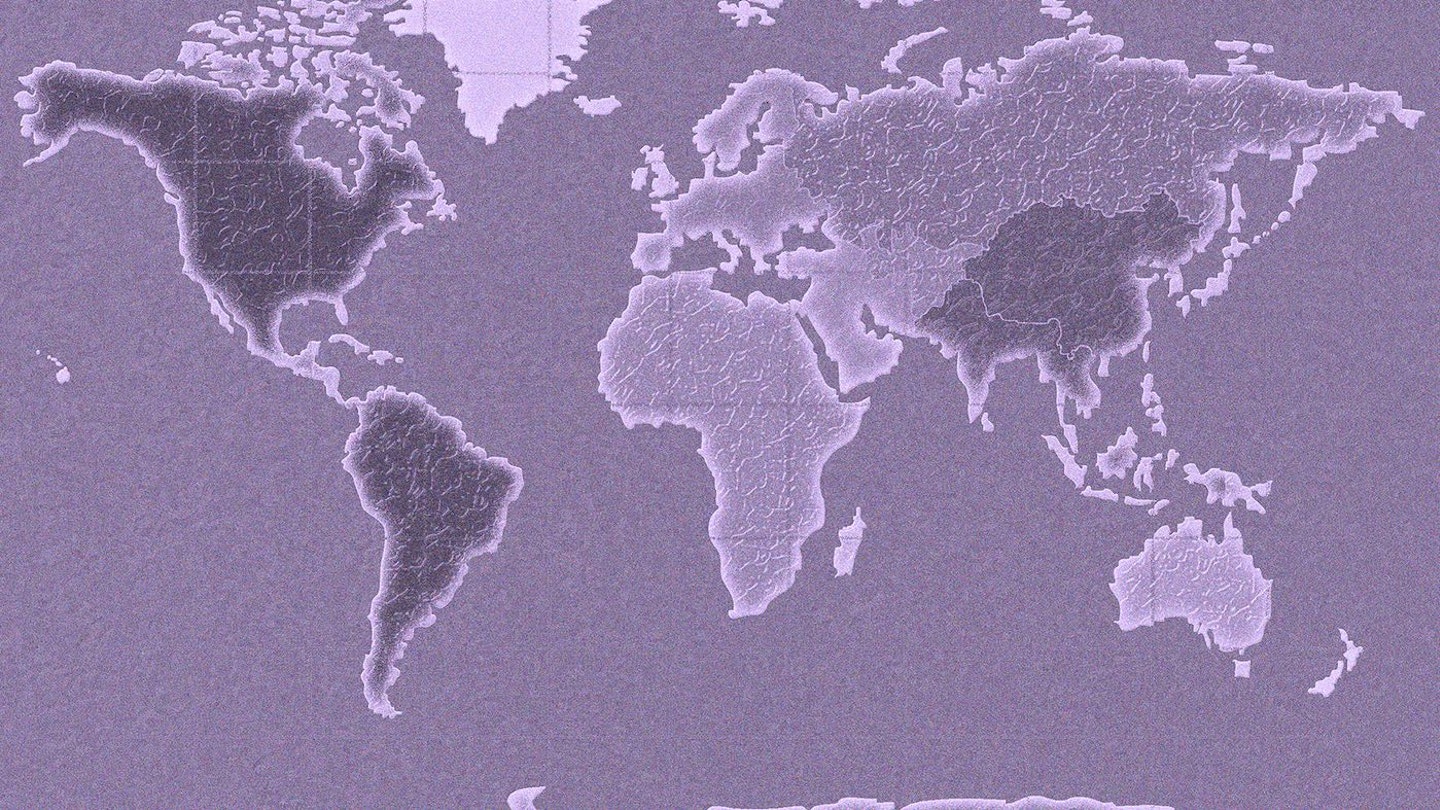Today marks International Women's Day in the UK and as such, it’s a worthy time to revel in the accomplishments of women. However, in all of our festivities and pride, it's important to acknowledge how there is still far to go in improving women’s rights in the UK and around the world. Because, there are women who still don’t enjoy the basic rights we have in the UK.
We live in a patriarchal society, that much we know. In the UK, our symptoms of that include the two women per week being killed by partners, conviction rates for rape amounting to a haunting 2% and Black women being five times more likely to die during childbirth than white women. Then there's the objectification of women, unrealistic beauty standards, the gender pay gap, maternity discrimination and glass ceiling. All of this, of course, made more difficult if you're an ethnic minority, LGBTQ+ or disabled.
But for us, the patriarchy often exists under a veil of hidden, socialised behaviours that impacts us dearly but at least as a society, is known as 'bad' - one would hope. In other parts of the world though, the patriarchy is often celebrated.
It’s in these countries where women face obstacles against the most basic human rights, from a lack of education to minimal political agency. Women are disproportionately impoverished globally, and while in the UK there are still archaic opinions about the women’s place being as the child-rearer and home-maker, in other parts of the world this is considered fact. Whether it’s due to religion, tradition or a lack of education, it all amounts to women being subservient.
It’s important to understand just how prevalent this is, especially at times like this, where we’re celebrating just how far women have come in the UK. We might be benefiting from what former generations fought for, but there is still a fight to be had. Just take a look at these countries where it’s still really difficult for women to vote (and work and live) ...
Countries where it's difficult for women to vote:
Vatican City
This one isn’t difficult, it’s flat out impossible. Vatican City, in Rome, is the last place in the world that still prevents women from voting. The centre of the Roman Catholic Church, this tiny state only allows cardinals to vote, when a new Pope is elected. While this also means not all men have the right to vote, women are unable to hold any executive or legislative positions in Vatican City elections- whereas men can become cardinals. It operates on religious doctrine, however with Pope Francis being more progressive about gay marriage and climate change, there was some hope they would break the ridiculous tradition that women can’t be cardinals. This is yet to be addressed, however, and so Vatican City remains the only place not to allow women to vote.
Saudi Arabia
This was the last country to allow women the right to vote, leaving Vatican City to claim that top spot, in 2015. It was also only last year that women were allowed access to education and healthcare without consent from a guardian (a father, brother, husband or uncle). Women continue to face restrictions on their public behavior, and aren’t allowed to make major decisions without male permission. In May 2017, King Salman ordered that women no longer required permission for activities like entering university, a job or undergoing surgery and women’s rights groups continue to protest the practice, even online using the hashtag #IAmMyOwnGuardian. However, being so heavily entrenched in their society, it’s still extremely difficult for women to make choices about politics without male permission.
Afghanistan
Under Shi’a Family Law, women are required to ask permission to leave the home unless it’s urgent. This was implemented in 2009 in Afghanistan, clearly making it difficult to vote without permission from a guardian. However, in 2014 women turned out in record numbers to vote and run for office, despite Taliban threats. Women are protested at the polls, and threatened by conservative community members with violence and exclusion.
Pakistan
With a lack of gender-segregated polling stations, you would think women would be more able to vote in Pakistan. However, strict rules about the way women and men can interact mean women in Pakistan can be barred from voting by their husbands and village elders. Those who do vote will be harassed or chastised, even facing violence at the polls.
Uganda
In the 2016 elections, violence against women at the voting polls was so concerning that a control center was set up to monitor it. It received 600 complaints from women’s rights groups who claimed it only further discouraged women from voting, causing delays in queues that forced women to go home to return to domestic duties.
The burden of household work being on the woman in many of these countries is a real obstacle to voting, with many women unable to find the time to travel to polling stations outside of their expected duties.
Kenya
In Northeastern Kenya, societal conflict means women are discouraged from walking the long distances to registration centers, as well as the physical insecurity of being out alone for a long period of time.
In western Kenya, women expecting children are prohibited by cultural norms to be seen in public, meaning that a huge portion of women are unable to go out to vote. With widespread health conditions in this country, women are also put off if they don’t feel fit enough to make the journeys to vote. This remains a problem in many countries were diseases and health conditions aren’t treated well and so prevent many people from getting out to vote.
In Kenya as a whole, violent elections in the past, notably 2007-2008, discourage women from voting out of fear.
Oman
Women only gained the right to vote in Oman in 2003, and remain to face religious and cultural barriers to voting. According to refworld, Oman’s rating for women’s freedom to exercise rights is 1.2 in political and civic matters, on a scale of 1 to 5 where 1 represents the lowest level of freedom. Women hold two of the 83 seats in Oman’s Consultative Council, providing little inspiration for women who wish to become politically active.
In instances where women do vote in Oman, they are usually dictated by their husband in how they should vote, or face staying at home and not voting at all. In 2011, Omani women spoke to The National stating that they would risk their husbands divorcing them to vote with their own preferences, so things are looking up. That being said, women still face immense pressure not to vote or to be controlled in how they vote.
Qatar
Like many of these patriarchal countries, women face pressure from elders and conservative family members not to vote. These restrictions are considered much stronger than any law, however younger generations of women are showing more independence in what they wear, resulting in hope for a cultural shift towards independence in other areas. In the last elections, one woman was elected unopposed, Sheika Yusuf Al Jaffiri, out of 29 seats. Elections as a whole have been suspended in Qatar until 2019, and the country operates under Sharia Law, which is notoriously oppressive to women.
Egypt
A 2013 poll dubbed Egypt the worst country in the Arab world for women’s rights, with sexual harassment, FGM and extremely conservative Islamist ideals contributing to the low rating. While they’ve had the right to vote since 1956, women face similar barriers to other patriarchal countries. One specific rule, put forward in 2015, banned women from voting in ‘revealing attire’ but despite the process insisting they remove their niqab veil to be identified. Essentially, women must now fear having to remove their veil- which they aren’t traditionally allowed to do in public- if they wish to vote.
In 2016 and 2017, the Egyptian government moved towards banning the burka stating it isn’t Islamic tradition or required by the Koran. However, for some women it is a personal, not enforced, choice and therefore the requirement to remove it for voting still remains an issue.
Nigeria
In Nigeria, there are less legislative barriers to voting than there are societal. The patriarchal society means many women feel their vote doesn’t count, especially with only 8% of representatives in the National Assembly being women. With a former president who doesn’t acknowledge the kidnapping of 279 girls for three weeks and a current president who jokes about his wife belonging in the kitchen, women’s rights are very much considered an afterthought despite it being Africa’s biggest democracy.
Papa New Guinea
In a similar sense to Nigeria, women in Papa New Guinea are discouraged from voting through a lack of representation of their issues. Only seven women have been elected since 1975. However, there are further legislative barriers to being elected that prevent women from being politically active. The sexist opinions that women are less capable for political roles mean women can’t gain enough support from tribal leaders who control the voting blocs. They can’t even buy votes within the PNG because they don’t have access to the same resources as men being kept out of traditional hierarchies. The lack of female representation only deepens the problems of violence against women and poor employment opportunities, further perpetuating the cycle of political inactivity.
Zanzibar
Zanzibar women made headlines back in 2015 when they began voting in the Tanzanian elections, only to be divorced by their husbands who told them not to vote. Near 50 women were divorced for not following their husband’s orders, causing further fear for women who want to vote but also want to stay married. It was during this expose that women revealed they fear violence at the polls, or choose not to vote because they will only be forced to cast ballots for candidates they don’t support.
While patriarchal societies are a huge barrier to voting, these are often enshrined in legislation in countries who follow Sharia law, such as Libya, Jordan, Kuwait and Lebanon- where women are further inhibited from voting by their guardians.
There is no doubt many more countries across the Middle East, Africa and Asia where women are subordinate and therefore feel disenfranchised. Just like with the ways charities hope to end FGM, it seems the best laid plan to tackle cultural norms comes from within villages and communities. In dealing with FGM, the best resource has been smaller groups like Plan International, who travel through villages and educate community leaders on the dangers of the practice.
Tackling cultural norms is a painfully slow process, and one that doesn’t automatically speed up with improved legislation (although that’s also a necessity). In these countries, where the patriarchy is still considered justifiable, it is necessary for more groups like Plan to educate communities on the myths around gender. Education is the best tool we have, and its why people like Rihanna encouraged Theresa May to donate £350m in 2018 to the Global Education Fund, which aims to prioritise girls education, with 130 million girls out of school globally.
These are all important ways to ensure that women are taught their value, and communities are educated on their ignorant views, in order to encourage more women to stand up and fight for the right to vote, as the suffragettes did for us over 100 years ago. It’s easy for us to say that, without the threat of violence that they would face, or the threat of divorce and the spiraling of your entire life. However, for women to achieve the same level of equality that we have, it takes those brave people risking it all for their rights.
It takes us, donating to charities like the Global Education Fund, writing to our governments to encourage greater influence in those countries, and travelling to help educate young children on the importance of equality. While we celebrate International Women's Day, we must recognize that a century on from our liberation, huge portions of women are still facing oppression and we must commit to helping that, in any way we can.
Click through to see the women on Instagram fighting gender inequality...
Inspirational Instagram Accounts You Should Follow
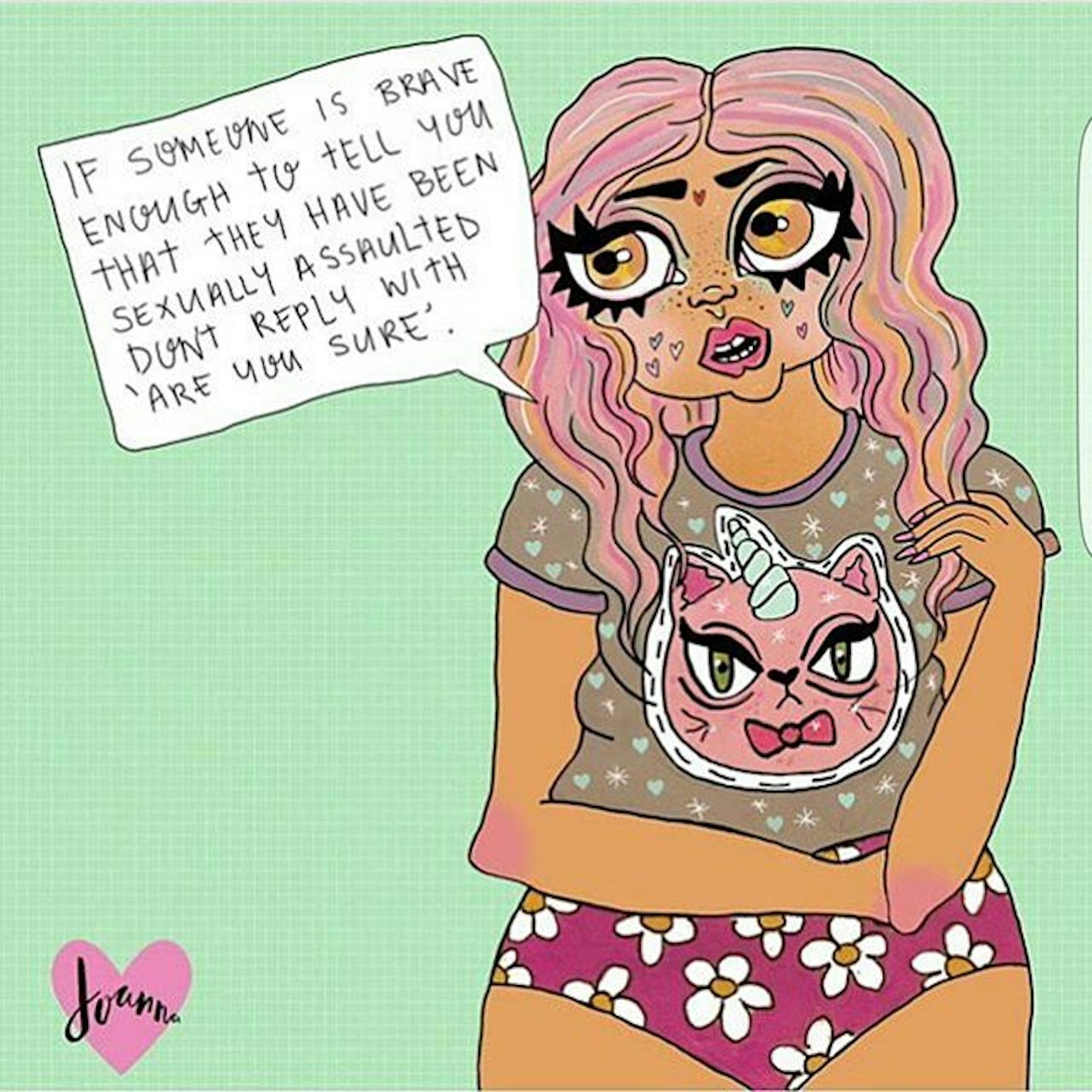 1 of 24
1 of 24Women In Comics
Illustrating inspirational images and depicting women in comic form, this account will brighten up your timeline with some home truths in the form of pretty pictures.
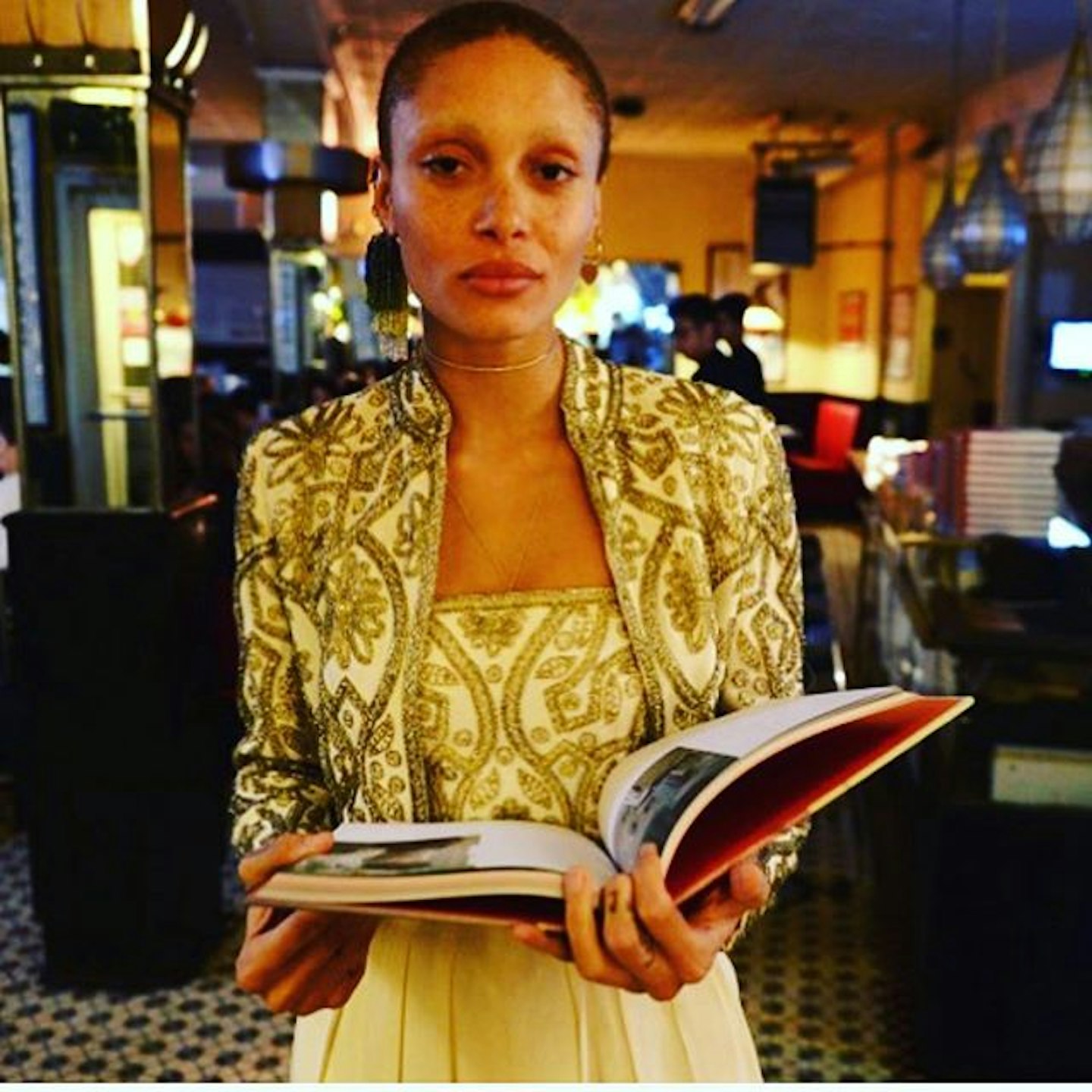 2 of 24
2 of 24Adwoa Aboah
This insanely beautiful model founded GURLS TALK, an online community where women from all backgrounds can share their personal experiences in a safe space.
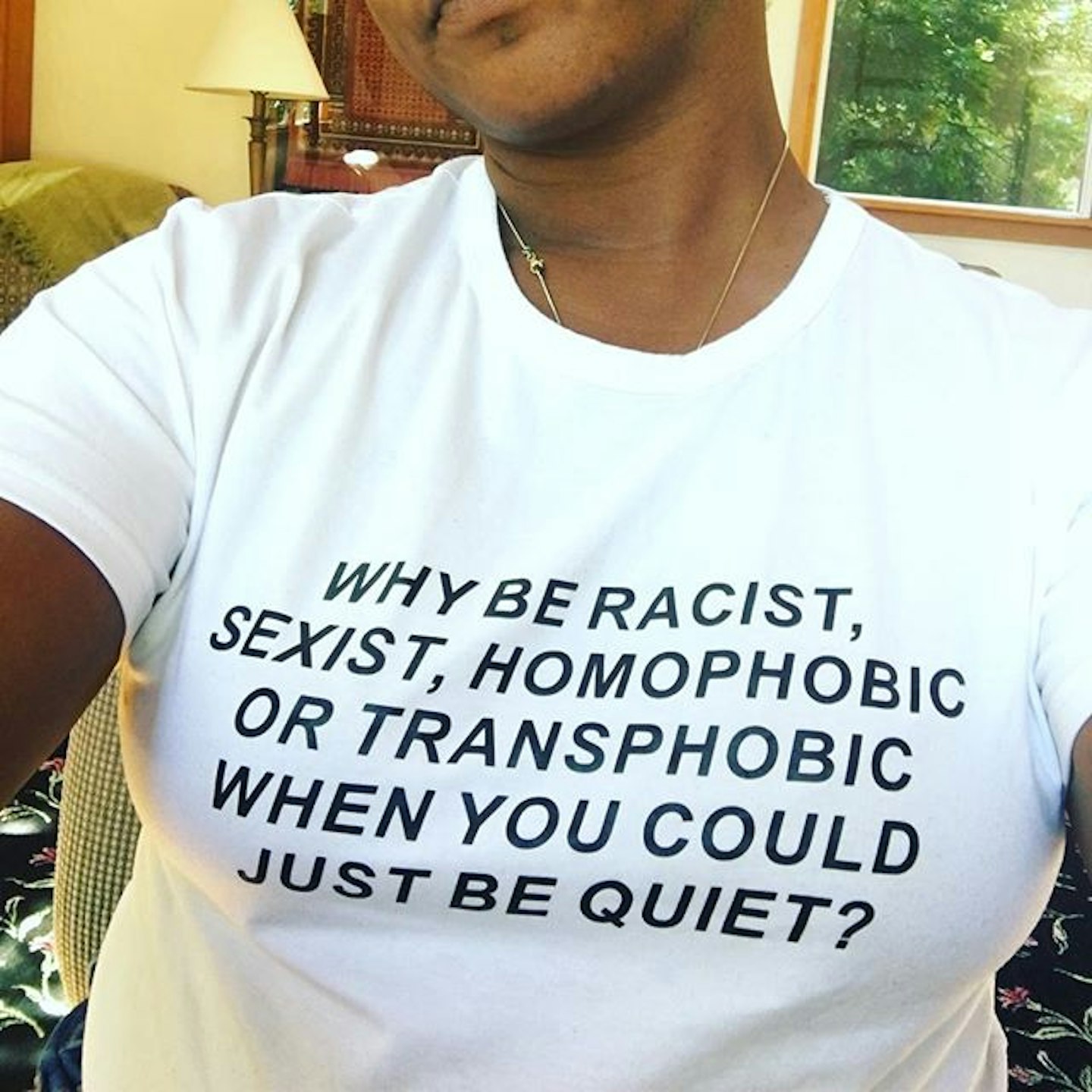 3 of 24
3 of 24Alicia Garza
Alicia is an editor and activist who co-created #BlackLivesMatter. Her feed is a mixture of relatable memes, unfiltered selfies and educational posts to keep you woke.
.jpg?auto=format&w=1440&q=80) 4 of 24
4 of 24Amandla Stenberg
You might recognise this actor from The Hunger Games, when she played the character only character we cried endless tears for, Rue. Now, while still acting, she's a full-fledged activist posting about everything gender, feminism and black culture.
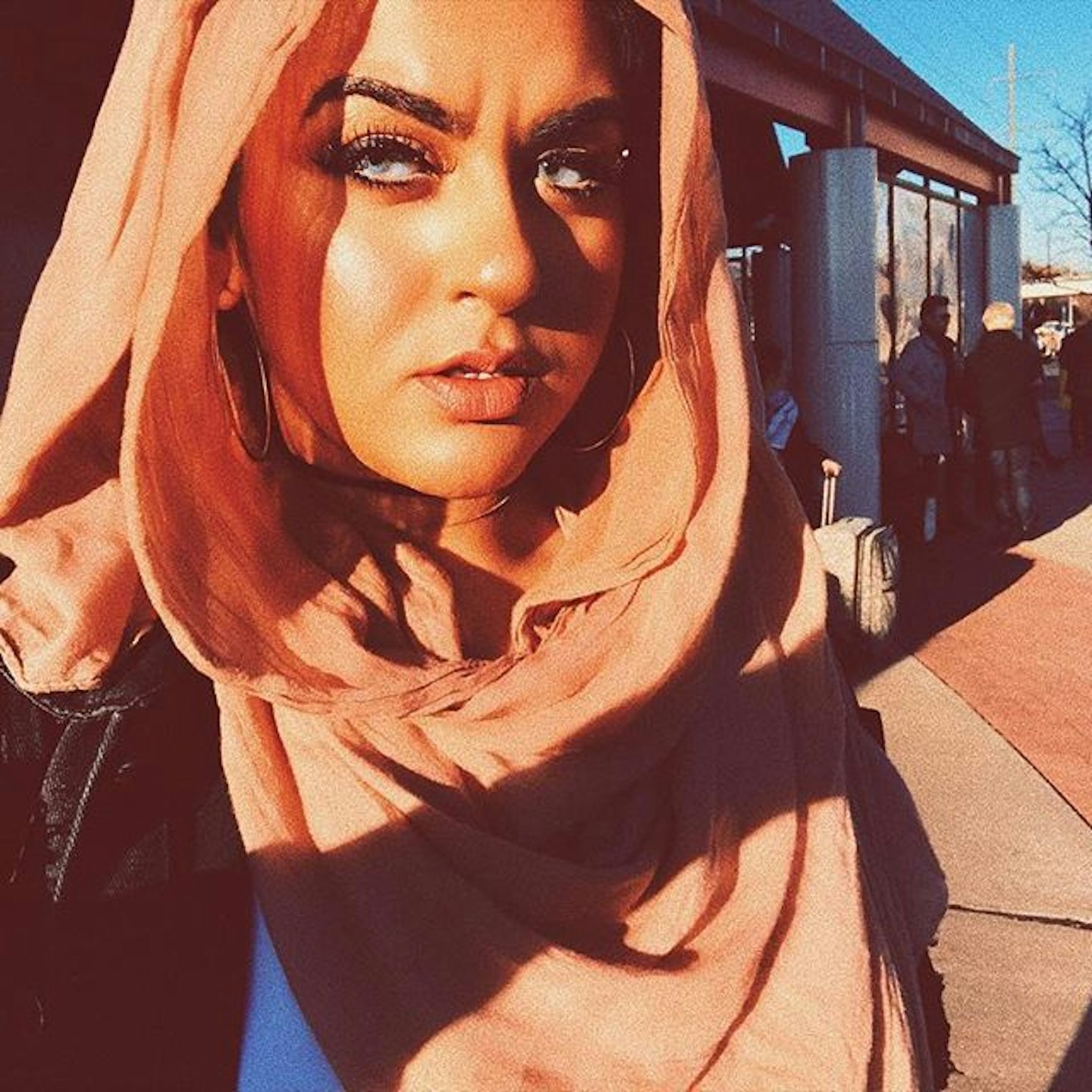 5 of 24
5 of 24MuslimGirl/Amani
Amani created the fast-growing activism account @MuslimGirl, another one you should definitely follow. She has spoken across the world about Muslim women and posts everything from badass selfies to stats you need to know.
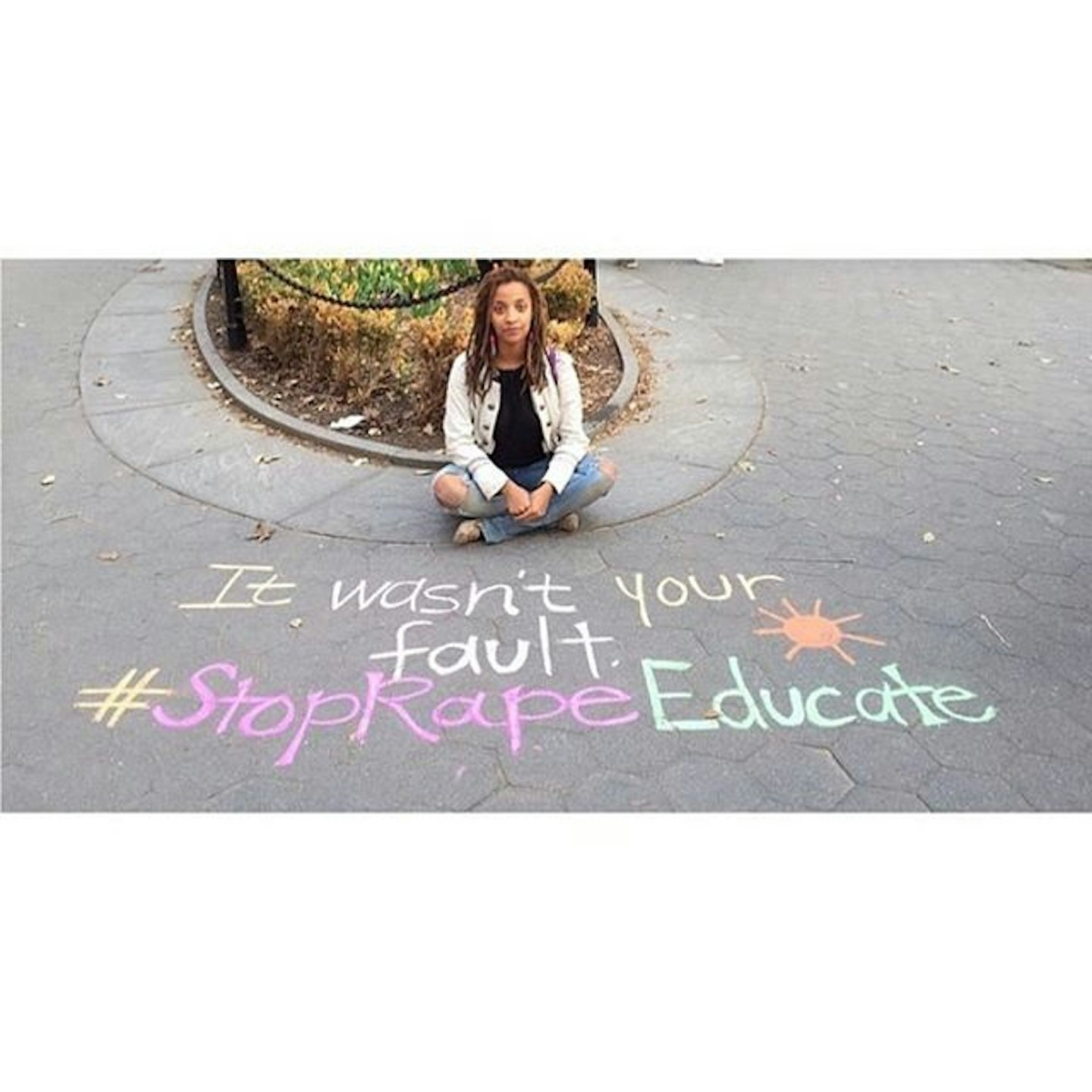 6 of 24
6 of 24Amber Amour
Amber created @CreatingConsentCulture which aims to educate people on rape culture and support rape and sexual assault survivors. She's also outspoken about racism and sex work, her feed will be endless many dinner party talking points.
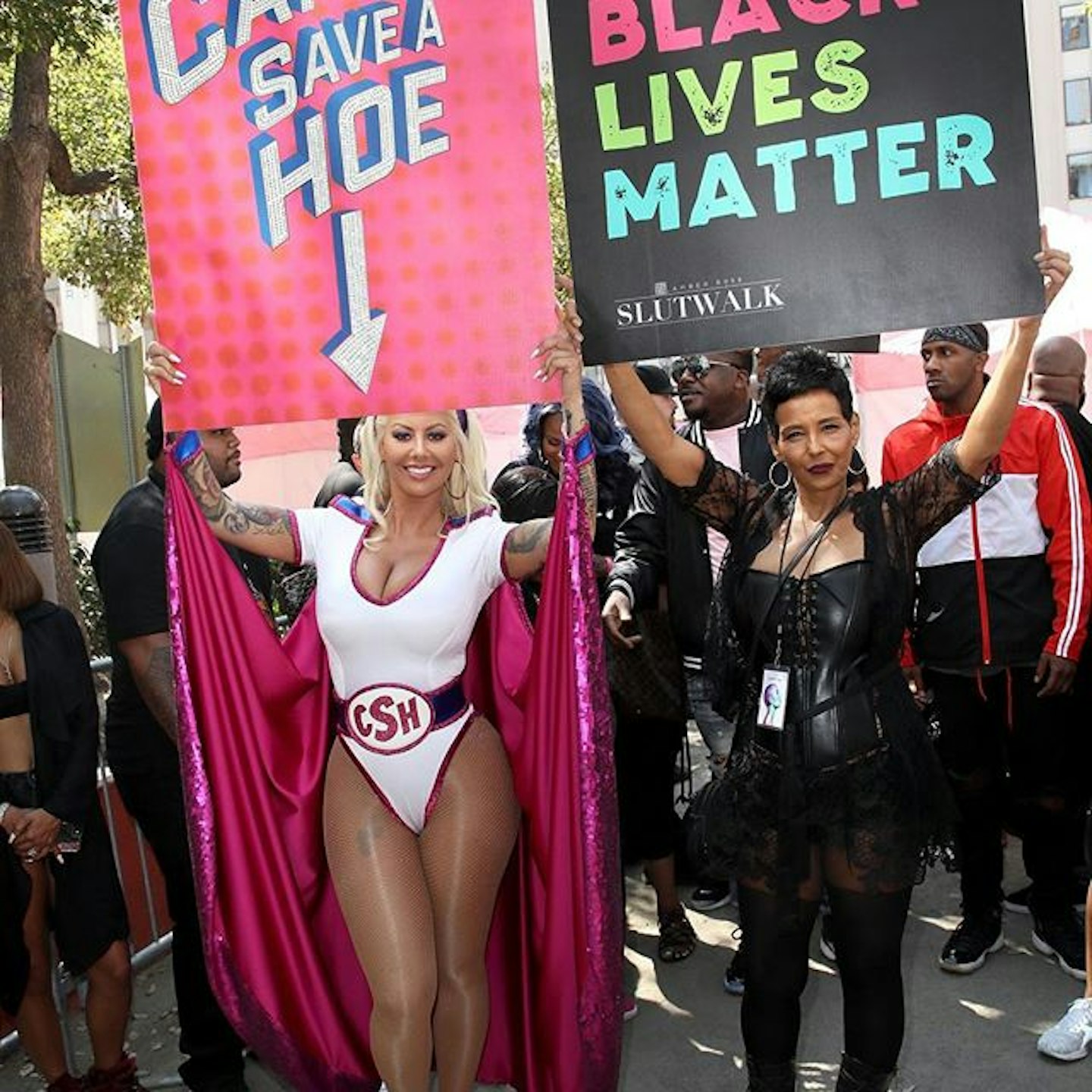 7 of 24
7 of 24Amber Rose
You may only know Amber Rose as Kanye's ex, but think again. Amber is a sex positivity icon, with her own pocast 'Loveline with Amber Rose' up until 2018 that aimed to promote healthy sexual relationships and self-love. If you can get past the fact she advertised flat tummy tea once (fgs Amber), you'll love her feminism-filled feed.
.jpg?auto=format&w=1440&q=80) 8 of 24
8 of 24Beverly Bond
Author of 'Black Girls Rock', Beverly's posts will have you both inspired and enraged, filled with commentary on everyday injustices.
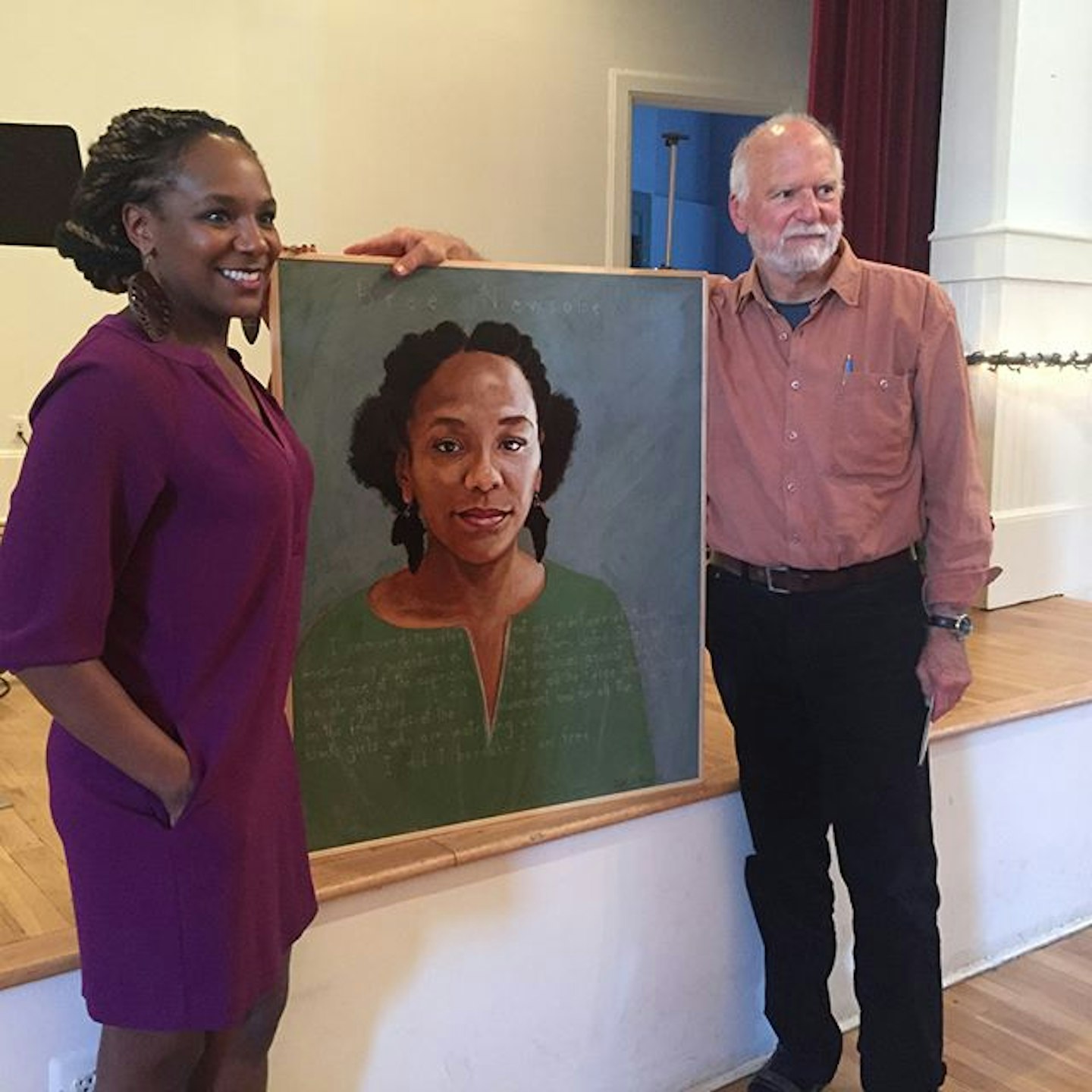 9 of 24
9 of 24Bree Newsome
You may recognise Bree as the activist who took down the confederate flag from a flagpole outside the South Carolina Capitol building. She's continuing her activism with inspiring art you need to see.
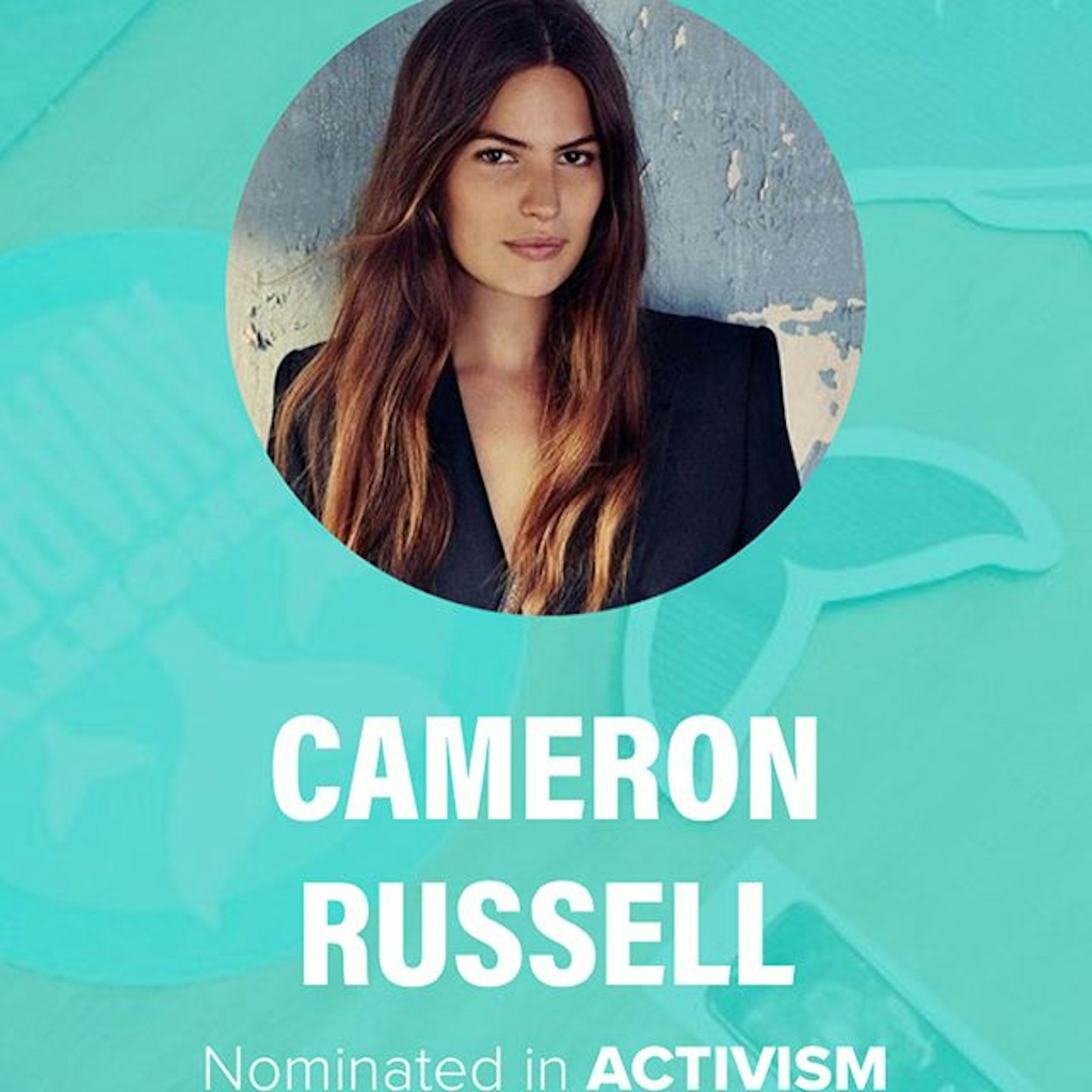 10 of 24
10 of 24Cameron Russell
An american model who called out the fashion industry for sexual harassment and assault, she started the #MyJobShouldNotIncludeAbuse hashtag. Her instagram is full of inspiring stories and educational videos exposing different injustices within her industry and beyond.
.jpg?auto=format&w=1440&q=80) 11 of 24
11 of 24Iskra Lawrence
If your not already following Iskra, your living under an Instagram rock. The body positive model started her own business, everyBODY with Iskra, to give health and fitness advice beyond just getting super skinny. You need her body posi vibes in your life.
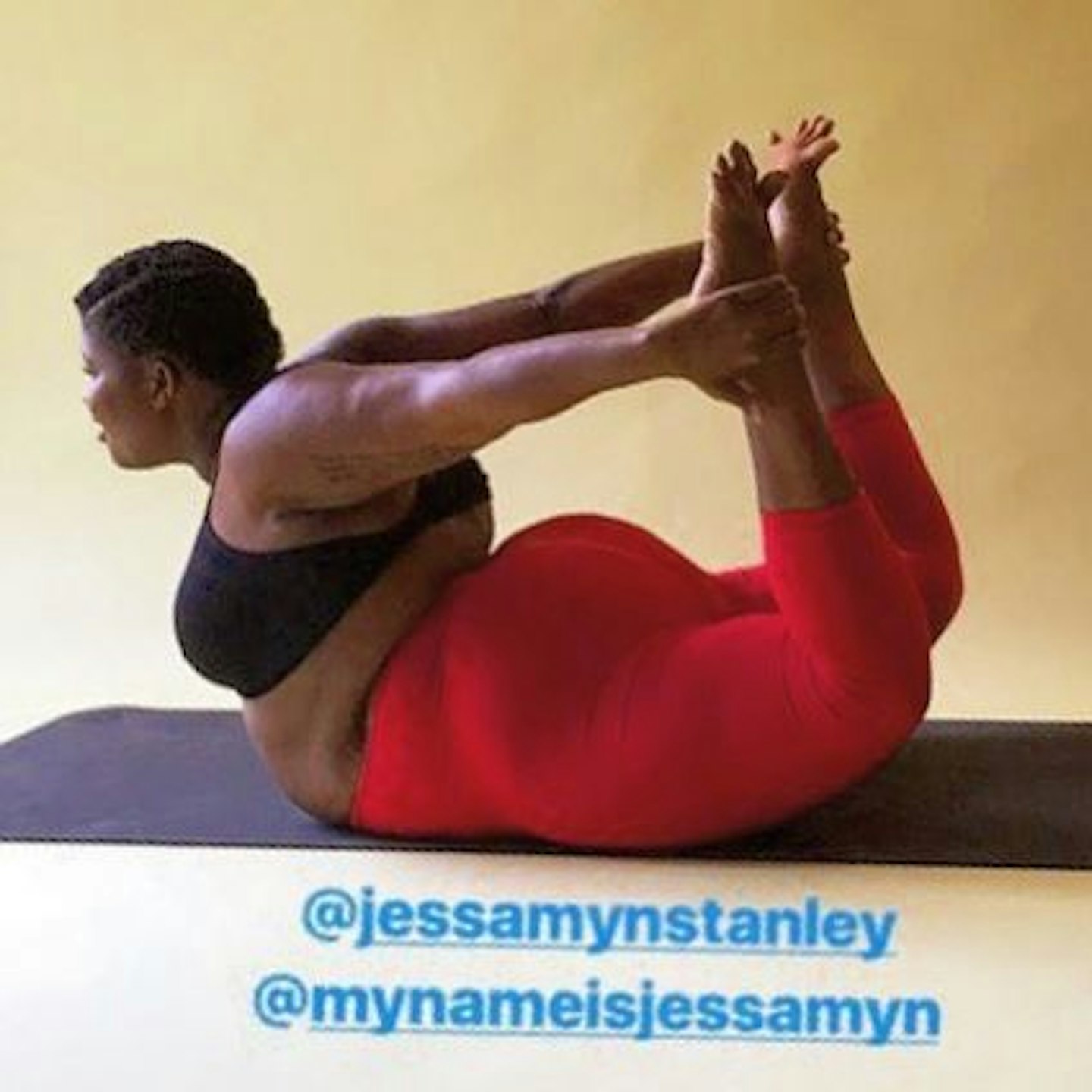 12 of 24
12 of 24Jessamyn
Another super body positive account to follow, Jessamyn is a yoga teacher regularly posting about the emotional and physical benefits of body positivity and practicing yoga.
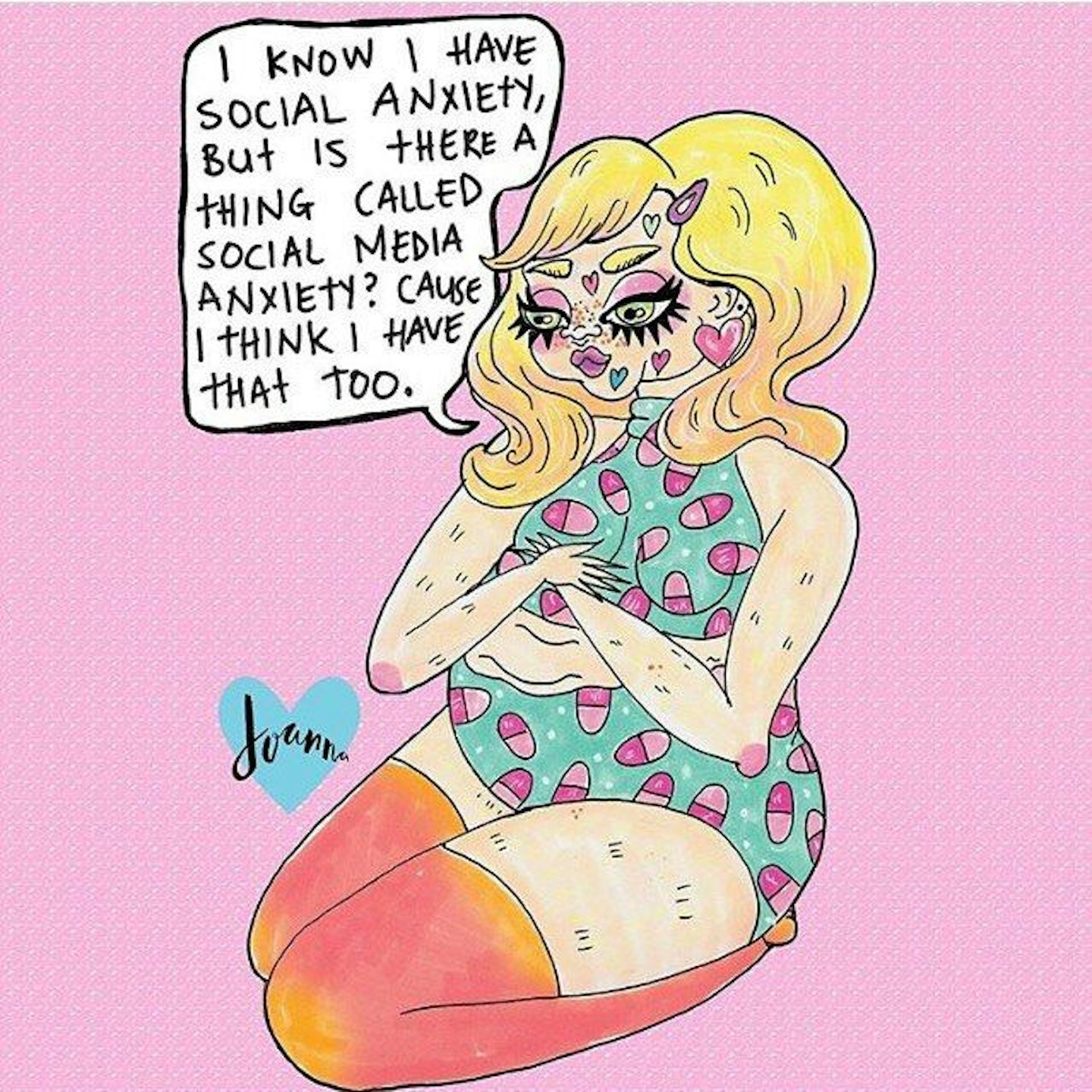 13 of 24
13 of 24Joanna Thangiah
Shun your timeline of filtered selfies and over exposed holiday destinations. It's time for some feminist, mental health aware art! This account is amazing for cute cartoons that say everything we're already feeling.
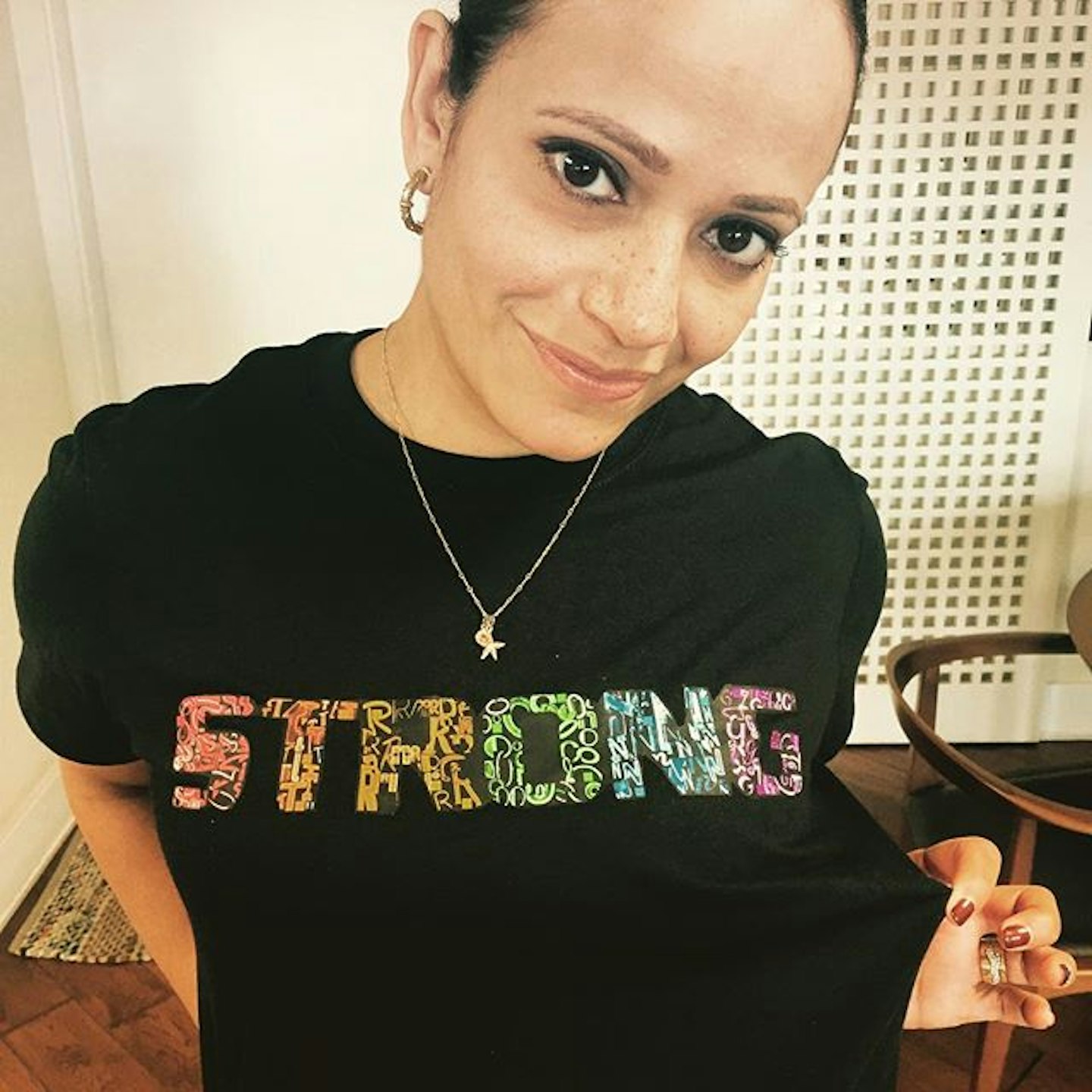 14 of 24
14 of 24Judy Reyes
You'll probably remember Judy as Carla from Scrubs, or one of the other thousand TV show she's been in throughout her insanely successful career. Unlike most Hollywood actors, her Insta is full of activism and news you need to know.
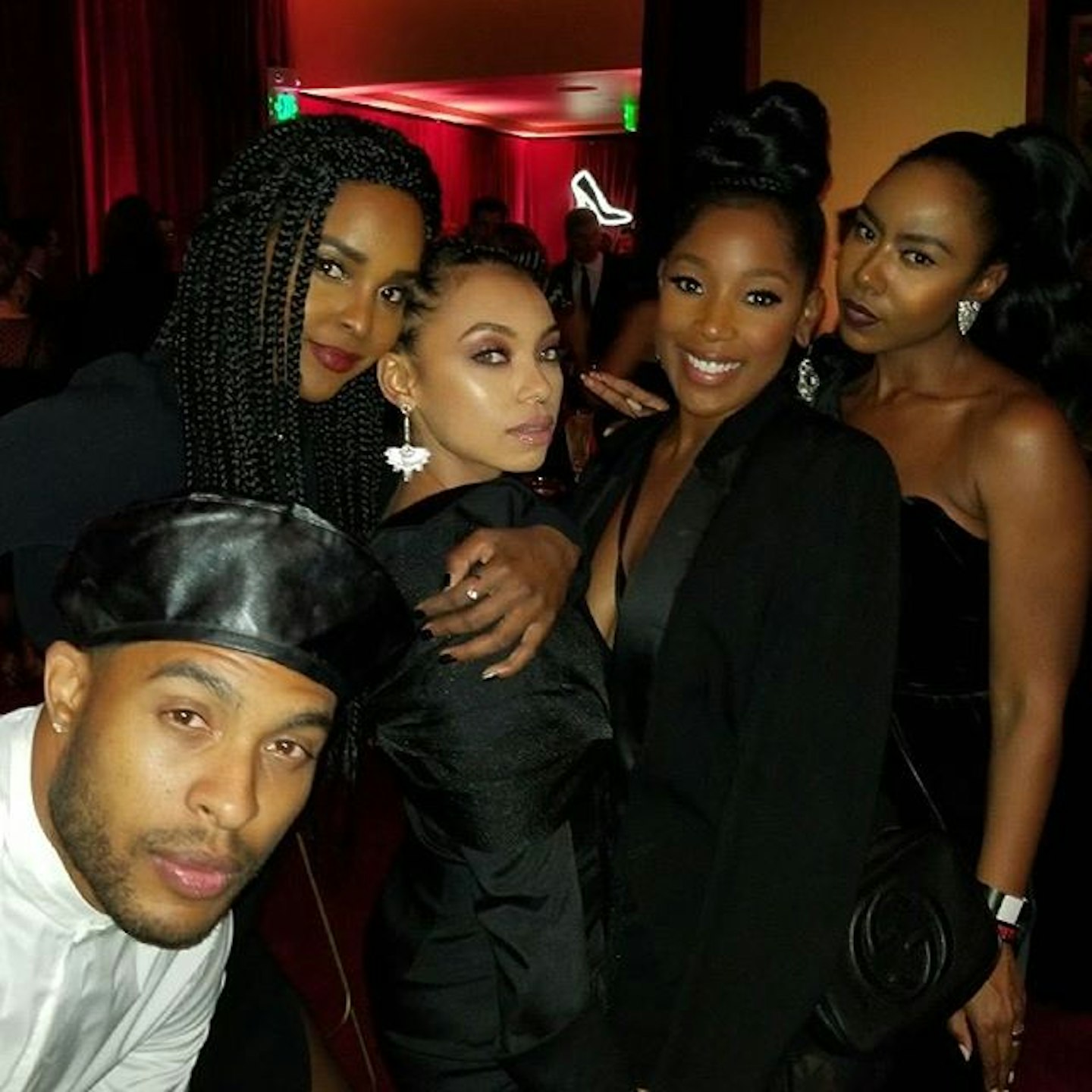 15 of 24
15 of 24Logan Browning
Activist and actor, Logan Browning is the lead of Netflix hit Dear White People. Posting powerful content and links to charities you can donate to so you can turn your online activism into action- she's a force to be reckoned with.
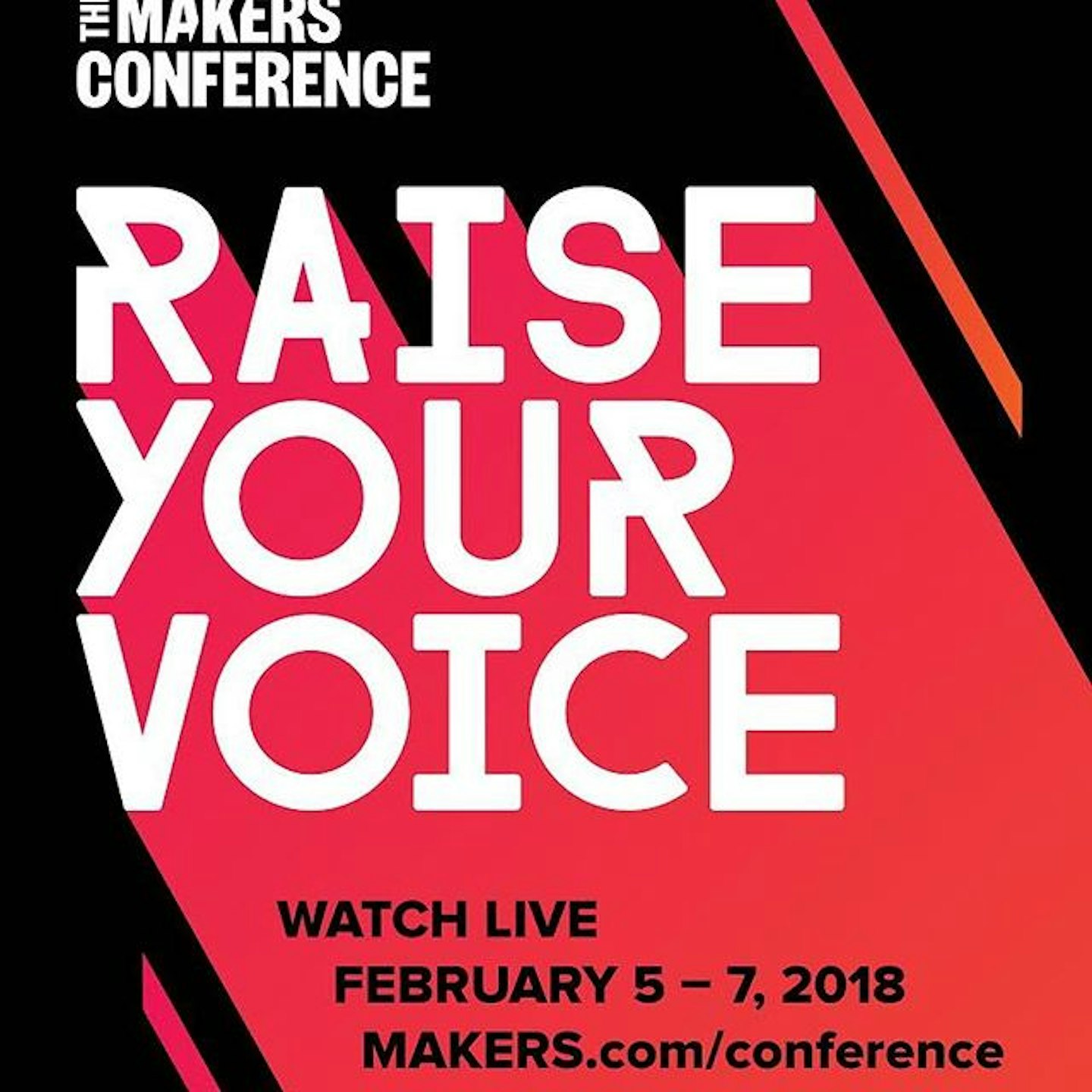 16 of 24
16 of 24Makers Women
MAKERS is a storytelling platform for women, posting quotes to keep you inspired throughout the day. Stay up to date with gender injustice, while also feeling hopeful with the powerful words these amazing women have to say.
.jpg?auto=format&w=1440&q=80) 17 of 24
17 of 24Nimisha Bhanot
Another artist you need to follow, Nimisha creates amazing prints (which you can buy) critiquing societal perceptions of South Asian women. She's based in Canada, but these prints can brighten up your timeline anywhere.
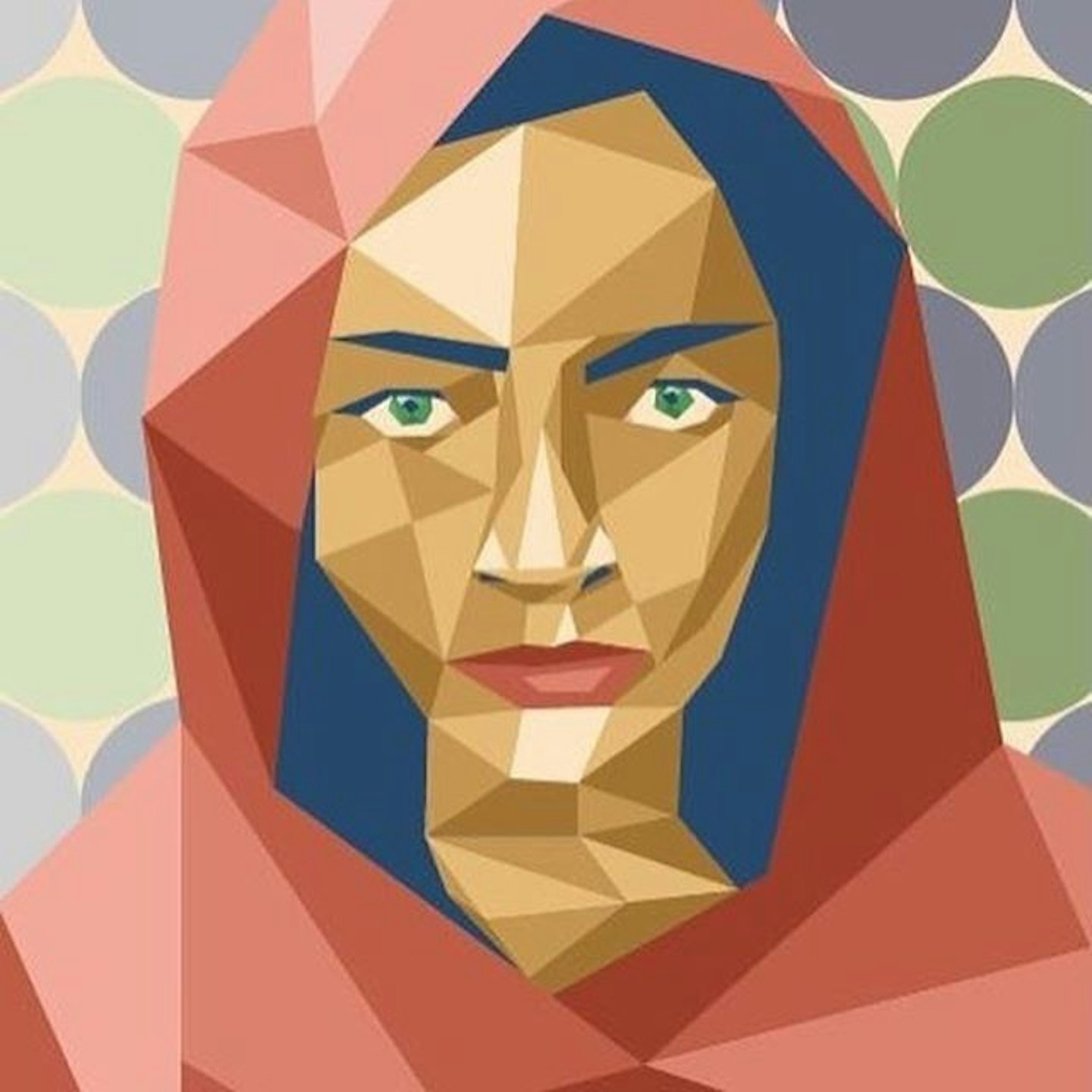 18 of 24
18 of 24Muslim Girl
Muslim Girl, where 'muslim women talk back' is an account ran by Amani. Advocating for issues facing muslim women, both accounts are an inspiration and necessity on your feed.
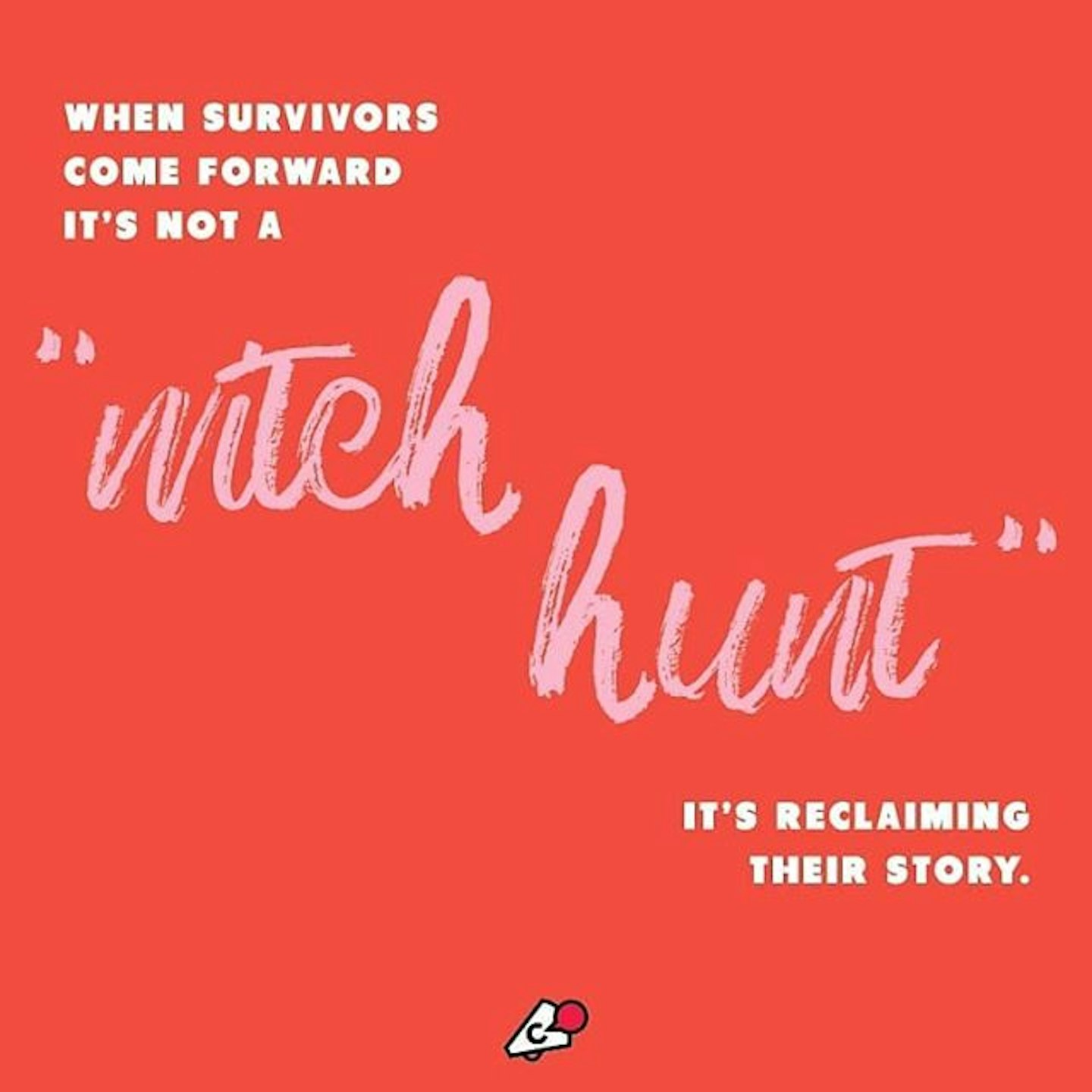 19 of 24
19 of 24Project Consent
There's no time like the present to be educating people on consent. This account does exactly that, and gives you the perfect explanations, comebacks and reminders to throw out at a dinner party if the issue comes up.
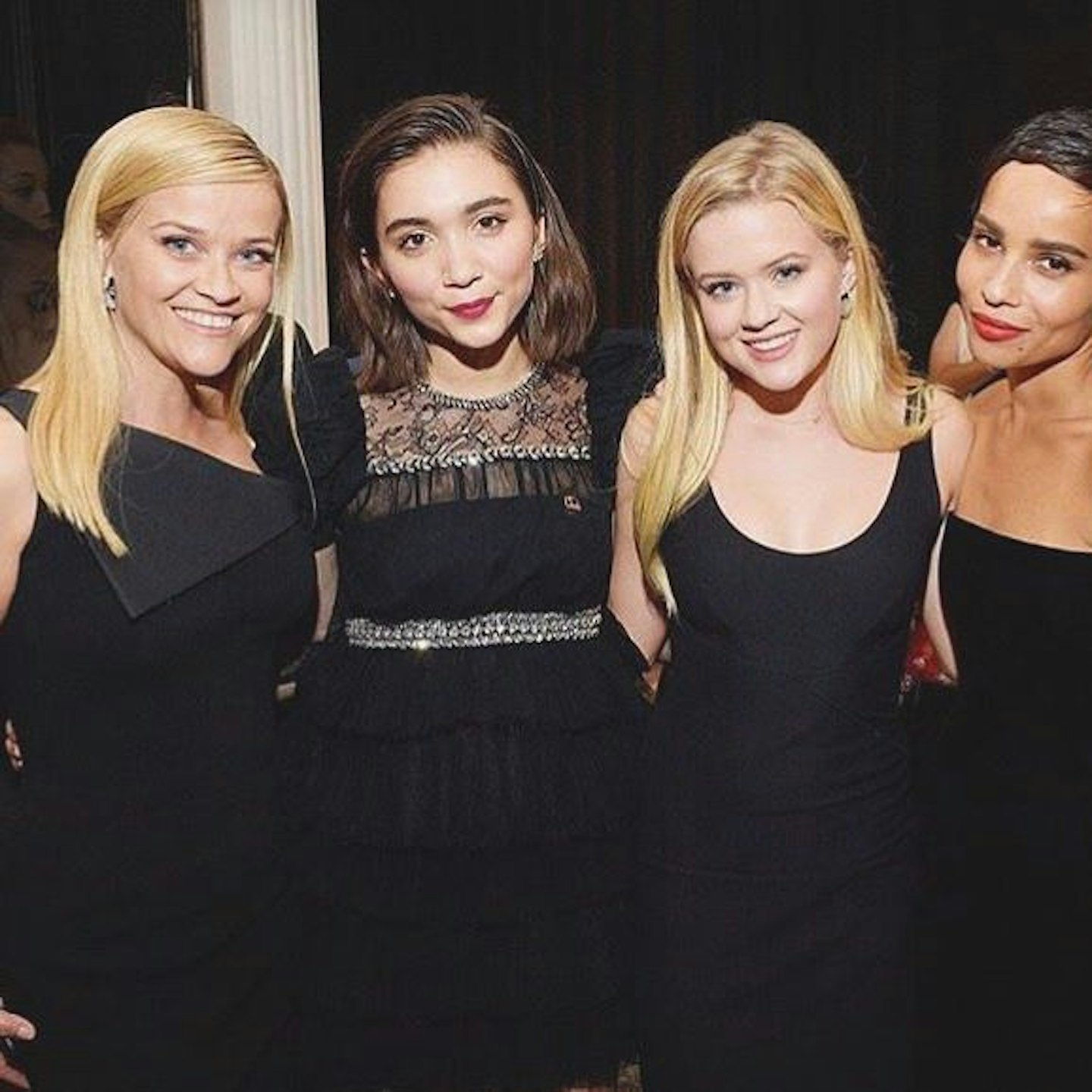 20 of 24
20 of 24Rowan Blanchard
Gone are the days of Disney stars going off the rails, this actor and activist is a beacon of positivity- especially online. Fighting gender and race injustice and beyond, she's one to watch.
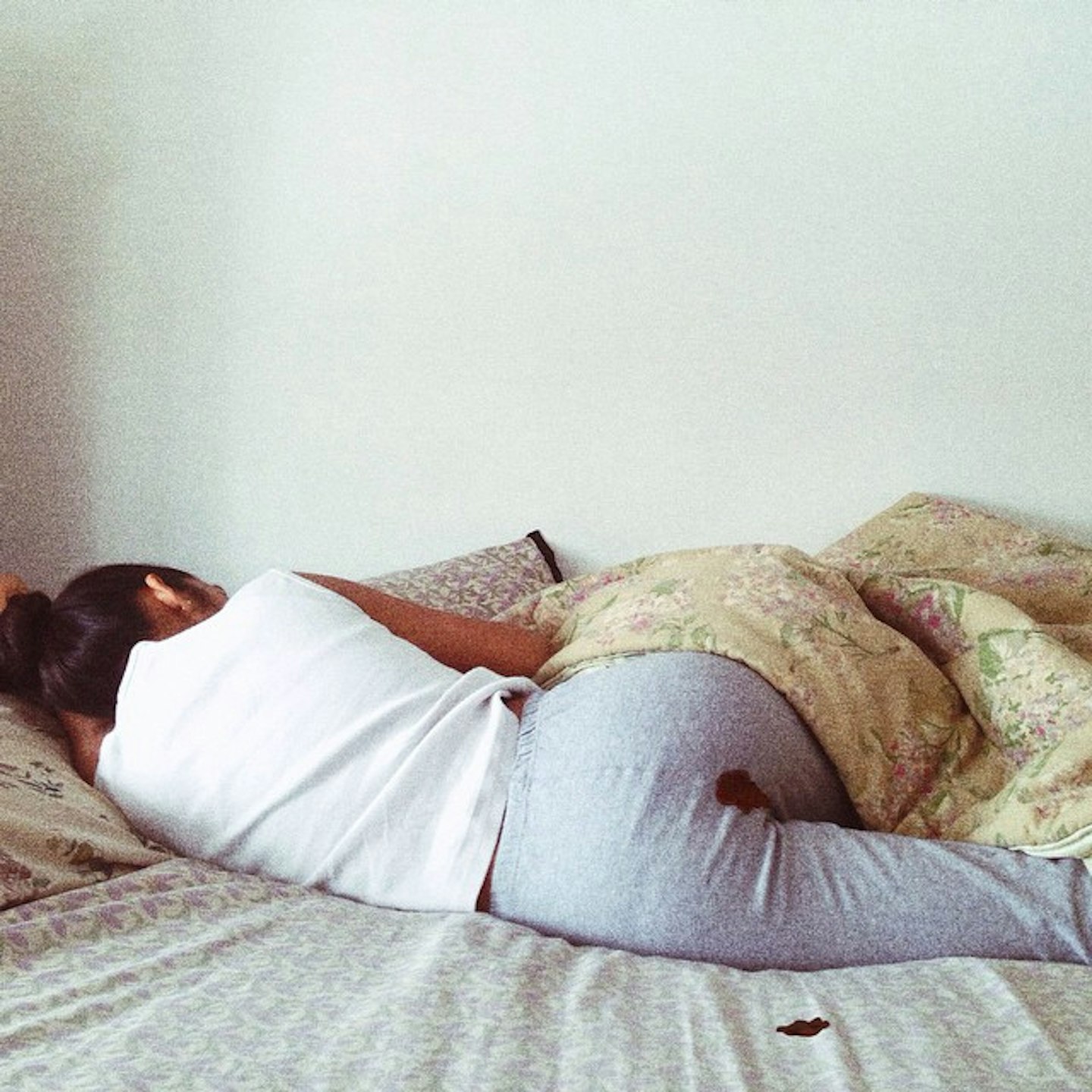 21 of 24
21 of 24Rupi Kaur
Rupi made headlines in 2015 when she posted pictures of her on Instagram with visible menstrual blood. Her posts were blocked by Instagram, causing backlash against the social media platform. She continues to break boundaries with her writing and poetry.
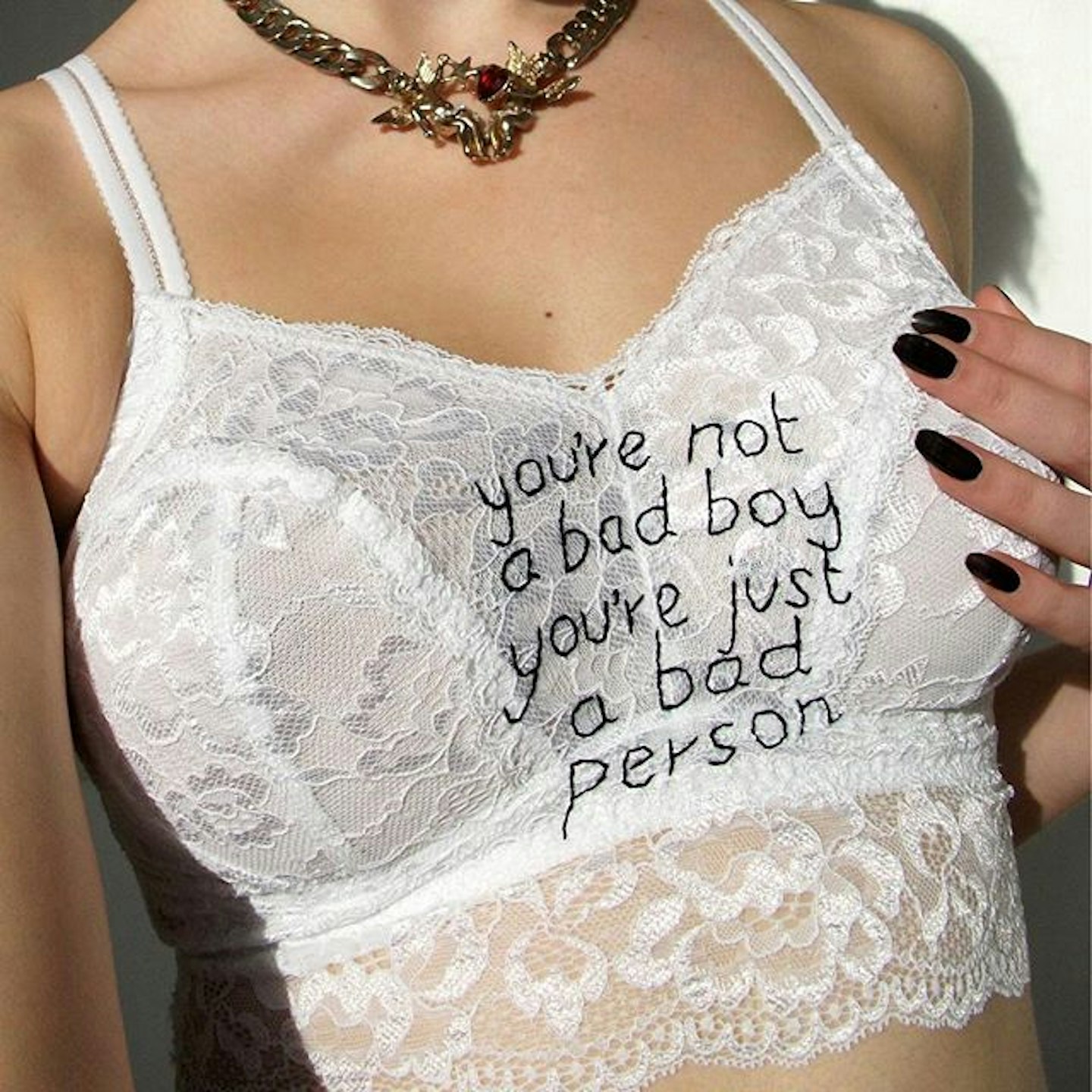 22 of 24
22 of 24Sophie King
This UK based embroidery artist is an up-and-coming star, embroidering feminist slogans onto everything from bras to roses. Bring her insta to life with her slogan t-shirts, or just stare at the pretty pictures, either way she's someone you should follow.
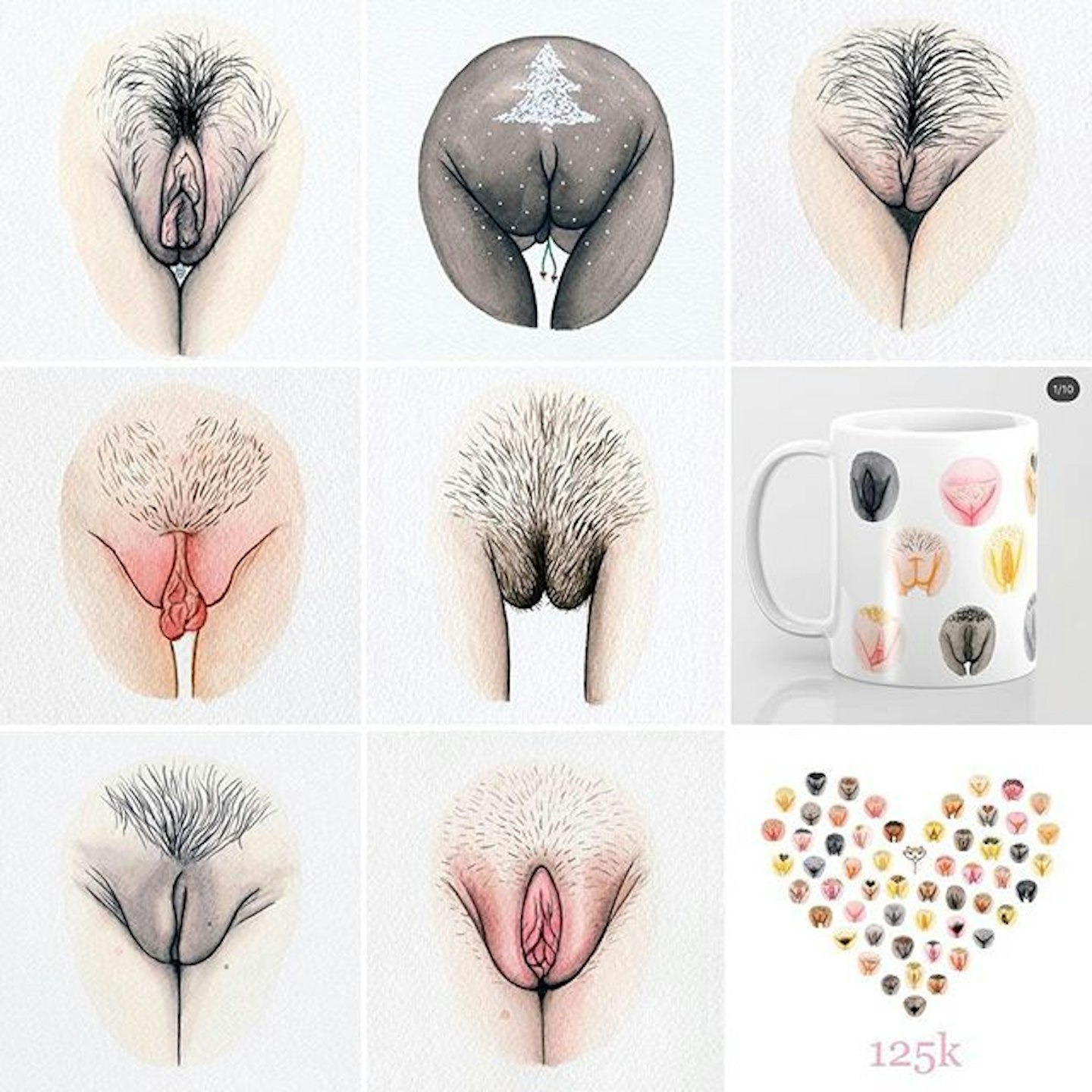 23 of 24
23 of 24The Vulva Gallery
Our favourite of all the accounts, the vulva gallery promotes self-love in an area SO often ignored. With two-thirds of women avoiding smear tests, life-saving procedures, because of the look of their vagina, it's time we stopped all of the self-loathing around genitals. Providing a regular reminder that all vaginas are beautiful, if you only follow one account of this list, it should be this one.
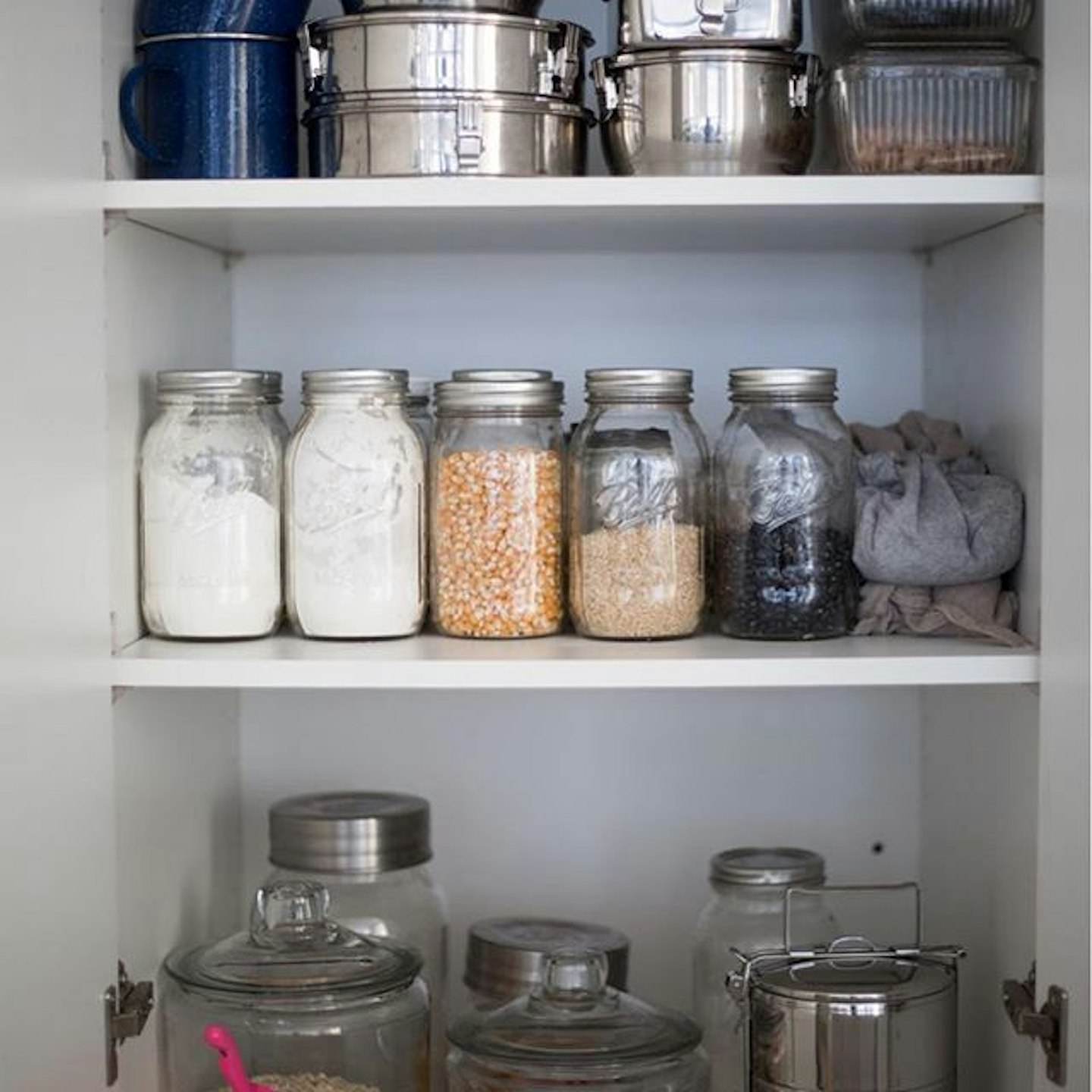 24 of 24
24 of 24Trash Is For Tossers
Lauren Singer lives an entirely waste-free life. Yes, you can actually do that. As #plasticfree takes over our news feed, it's time you had some daily advice on how exactly to reduce your waste. Save the planet!
This article originally appeared on The Debrief.
